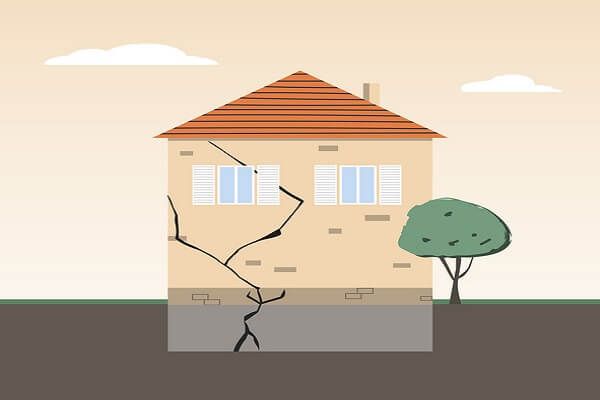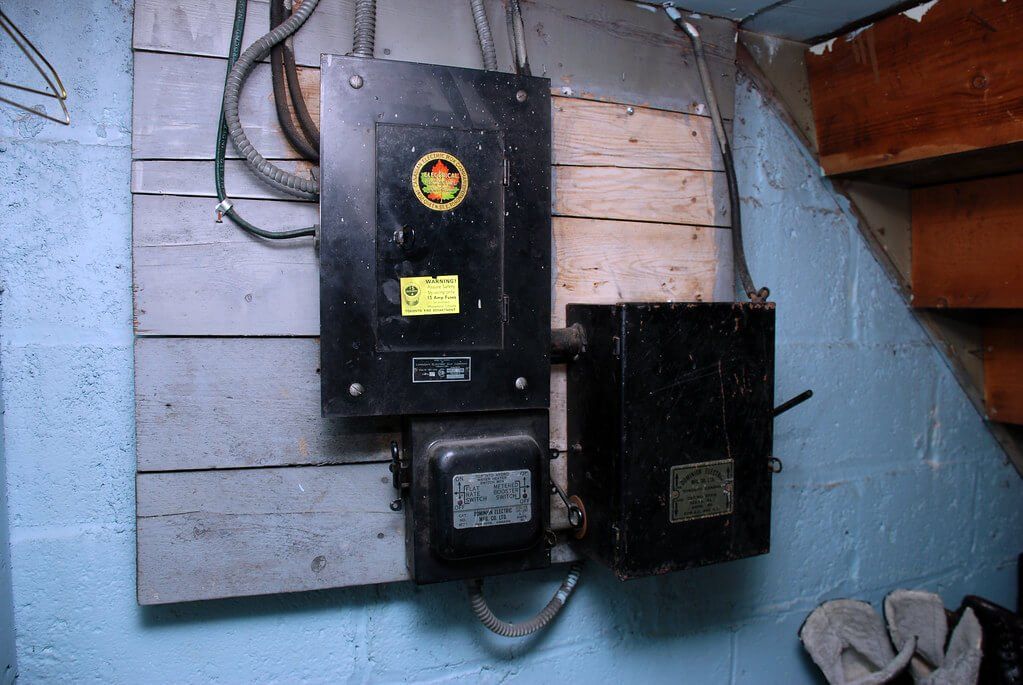Options for Selling a House With Code Violations

Selling Your House With Code Violations
If you want to sell your house but there are code violations like a damaged roof or faulty electrical wiring, you'll need legal representation. A real estate attorney will handle the sale of the house and give you sound legal advice. An attorney will also negotiate with the buyer over issues concerning the house, such as repairs or credits.
A real estate agent can help you sell your house "as-is." This means that all issues with the home will be explained to potential buyers. If they're interested, then you can work out a contract. Any terms you discuss the repair of the house will be part of the contract.

Get A Free Cash Offer on Your Home Today
Home Inspection Code Violations
Now that you know how to sell your house with code violations, let's go over some of the most common code violations:
1) Working without A Permit Code Violation
When electrical, plumbing or other work is completed in a house without a permit, the city will order the homeowner to have these jobs inspected. The homeowner has no recourse but to call a licensed professional to perform this inspection (with the proper permits). Once it has been checked out and passed, then the city inspector will sign off on it and you can re-sell your house. This will have to be done before you can list it for sale on the market.
2) Not Testing Older Materials for Asbestos and Lead
Older homes may have asbestos or lead in the building materials. Even if they are not visible to you, they can be hazardous to the health of your buyers. The best practice is to test for these harmful materials before you list your house or even before you start doing any renovations or repairs.
3) Improper Fastening of Deck Ledgers to Houses
Deck ledgers need to be attached properly to the house; otherwise, they may detach and collapse over time. This can result in expensive repairs or injuries. The deck ledger should be securely fastened with screws or bolts through the exterior wall of your house.
4) Adding a Basement Bedroom Without an Egress Window
Oftentimes, when basements are finished or even in the process of being finished, homeowners will add a bedroom down there. But if this room does not have at least one egress window, it's against code. Egress windows are only required in bedrooms and bathrooms.
5) Venting a Bath Fan into an Attic
When the insulation in your attic is compressed or disturbed, this can cause moisture to condense. This may lead to mold growth. The best practice is to have the exhaust from the bathroom fan vented through a roof vent instead of into your attic. Otherwise, you are just recirculating moist air and increasing moisture in your home which makes it a breeding ground for mold and mildew.
6) Botched Electrical Work
When you're selling a house, it's best to hire an electrician to check all the electrical wiring (and electrical panels). Many homeowners think that they can do their own electrical work safely but this is often not the case.
7) Not Following Fence Height Requirements
It's best to check with your city's building codes before you build a fence around your house. The requirements vary from place to place and some cities have no height restrictions at all. Others want them to be between four feet high and six feet high. Still, others state that they cannot be over three feet tall.
8) Missing Deck Flashing
When you're building a deck, waterproofing materials are used to keep water out of the wood on your deck. If these materials are not properly installed, this can cause damage to wet areas inside the house. The best practice is to have it checked by an experienced carpenter.
These are a few of the too many code violations that can come up. There are many more that homeowners need to be aware of before listing their house for sale. A cash buyer will not be concerned about some of these issues, but a mortgage company will be.

How to find out if a house has code violations
If you're buying a house and you want to know if the house has code violations, ask for a home inspection. A real estate agent will often do this as part of his or her service; otherwise, you can pay an inspector out of your own pocket.
Having said that, here is some good news: even though there are such a large number of code violations, a cash buyer will not worry about them. They are only concerned about the property being able to appraise for at least its asking price so they can be sure that their investment has been protected.
The most reputable cash buyers have been doing this for a long time and know-how to work with homes in need of some tender loving care. These buyers will not only purchase the house and work on it themselves, but they can also show you how to negotiate with a mortgage company so you don't have to pay for the repairs yourself.
Get A Free Cash Offer on Your Home Today

What happens if your house is not up to code
If the house you are selling is not up to code, go back and try to fix some of these issues before listing it with a real estate agent. These brokers have access to cash buyers who will buy homes that need renovations and repairs because they're considered "fixers."
Yes, you will have to do some of the work yourself after someone purchases your house. But you can either do it yourself or hire a handyman at a reasonable price.
If your house is still not up to code after selling it through an agent, some states allow for some exceptions when you are selling it on your own. These exceptions are usually for up to ten percent of the house is out of code.
If you have not made any corrective action or your state does not allow these exceptions, and you still haven't fixed potential code violations, then don't sell your house at all in the open market. Go back and fix the stuff that needs fixing so that your mortgage company will give you a clear title when it's ready for someone else to purchase.

Sell House With Code Violations: Final Thoughts
If your house has code violations, it's best to have a real estate agent list the house. This way, you won't have to worry about paying for any repairs or renovations and these brokers can help show you how to sell your house to a cash buyer who will take care of everything for you.
Sometimes, there is not much we can do about these things and sometimes we can fix up our house so it meets the criteria of what a mortgage company requires. Either way, there are options out there for you if you keep your eyes open and your wits sharp.
Our Recent Post
Get a Cash Offer for Your Home Today
Get Your No-Obligation All Cash Offer




